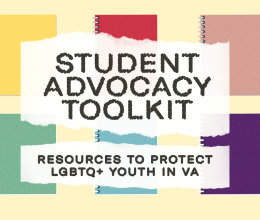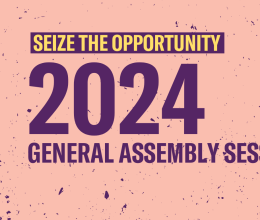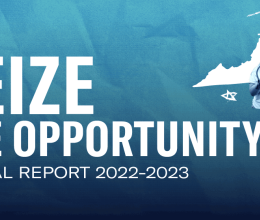Note: This is the first in a five-part series featuring Virginians whose rights would be directly affected by anti-LGBT bills now under consideration in the state legislature. All writers participated in a joint news conference held by the ACLU of Virginia and Equality Virginia at the Virginia Capitol on Jan. 19, 2016. By Robert Rigby Fairfax County Public Schools (FCPS) Pride
By Robert Rigby Fairfax County Public Schools (FCPS) Pride
I have been a teacher in the Fairfax County Public Schools district for the past 17 years. I represent a new employees’ group, “FCPS Pride.”
After many years of efforts, Fairfax County updated its non-discrimination policies during the past school year to include sexual orientation and gender identity. As a result, we were able to organize as a certified employees’ group, to include lesbian, gay, bisexual and transgender staff of FCPS. We are teachers, administrators and sponsors of student clubs; we have been joined by parents of LGBT students in Fairfax, and community members.
FCPS Pride was disappointed but not surprised by Del. Bob Marshall’s (R-Manassas) House Bill 385, which would prohibit school boards and state agencies from passing inclusive non-discrimination policies, which protect LGBT staff, families and students.
Members of the LGBT community of staff in Fairfax, my community, have spoken of the acceptance we sense in our schools as a result of the passage of the inclusive policies. I and others feel more secure in our employment than we ever have. New teachers talked about coming to Fairfax in part because it is a welcoming employer. Marshall’s bill would dial this all back; he would take away our sense of security and inclusion.
These bills will affect the ability of public schools to attract employees and families, and will also impact colleges and universities in bringing in professors and students. It will make Virginia a less attractive place to live and work. As for Del. Mark Cole’s (R-Fredericksburg) bills to limit and penalize bathroom use based on “anatomical gender” (HB 663 and 781), our response is one of disbelief and anger.
Cole says that he expects his proposal to be enforced by facilities users. I imagine suspicion of students, staff and visitors, perhaps resulting in accusations, and some sort of hearings and assessment of a person’s gender.
As teachers we wonder whether we would be called upon to enforce this law; if a student or a visitor brings a complaint to me, do I refer it to my assistant principal, do I contact our School resource officer? Will I need to defend myself if someone brings a complaint against me? It brings in worry and anxiety not only to transgender stakeholders in our schools, but to anyone who may not meet some “user’s” concept of masculinity or femininity.
What he calls “common sense” legislation in fact ramps of the rhetoric around these concerns, and increases fear in our schools.
NEW
We won another case at the Supreme Court of Virginia!




